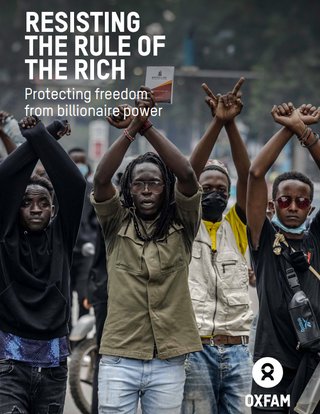Social Work Interdisciplinary Research Lab spreads awareness about intimate partner violence at the 2025 India Festival Tampa Bay – University of South Florida

Report on a Collaborative Initiative to Address Intimate Partner Violence in the South Asian Community
Introduction
On November 1, a multi-stakeholder partnership was formed at the India Festival Tampa Bay to address the critical issue of intimate partner violence (IPV) within the South Asian community. This initiative, involving the University of South Florida’s School of Social Work Interdisciplinary Research Lab (SWIRL), the College of Public Health’s Harrell Center for the Study of Family Violence, and the Hindu Family Support Services (HFSS), directly aligns with several United Nations Sustainable Development Goals (SDGs) by promoting health, equality, and peaceful communities.
Alignment with Sustainable Development Goals (SDGs)
The project’s framework and objectives demonstrated a significant commitment to the 2030 Agenda for Sustainable Development, with a particular focus on the following goals:
- SDG 3: Good Health and Well-being: By providing resources and raising awareness about IPV, the initiative directly addressed a major public health issue that impacts the physical and mental well-being of individuals and families.
- SDG 5: Gender Equality: The core mission was to combat a form of gender-based violence, contributing to the target of eliminating all forms of violence against women and girls in the private and public spheres.
- SDG 10: Reduced Inequalities: The initiative employed culturally grounded outreach to ensure that a specific demographic, the South Asian community, has equitable access to support services, thereby reducing inequalities.
- SDG 16: Peace, Justice, and Strong Institutions: By addressing family violence and strengthening community-based support systems like HFSS, the collaboration works to promote peaceful and inclusive societies.
- SDG 17: Partnerships for the Goals: The project is a model of a multi-stakeholder partnership, uniting academic institutions and a community service organization to achieve common sustainable development objectives.
Key Activities and Outreach
At the festival, which was attended by over 12,000 people, the collaborative team engaged in targeted outreach activities designed to advance the aforementioned SDGs. Key actions included:
- Educating community members on recognizing the signs of unhealthy relationships.
- Connecting individuals with local, culturally responsive domestic violence resources across the Tampa Bay area.
- Providing opportunities for the community to support survivors through donations.
- Recruiting volunteers to strengthen the institutional capacity of HFSS and SWIRL.
Outcomes and Impact
The initiative successfully engaged hundreds of community members, resulting in increased awareness, enhanced knowledge of available resources, and the establishment of meaningful connections with leaders dedicated to addressing family violence. This outcome contributes directly to building safer, healthier, and more equitable communities, in line with the core principles of the SDGs.
Participating Personnel
The core team from the Social Work Interdisciplinary Research Lab (SWIRL) included:
- Guitele Rahill, PhD, LCSW: Co-founder of SWIRL and Associate Professor Emerita, School of Social Work
- Manisha Joshi, PhD, MPH, MSW: Associate Professor, School of Social Work; Co-founder and Director of SWIRL
- Sakshi Wagh: Biomedical Sciences Major, Judy Genshaft Honors College; United Nations Millennium Fellow
- Sirinandini Amperayani: Biomedical Sciences Major, Judy Genshaft Honors College
- Samridhi Bhardwaj: Biomedical Engineering Major, Toronto Metropolitan University, Canada
This team, alongside HFSS and other volunteers, effectively strengthened community support networks for survivors of intimate partner violence.
Analysis of Sustainable Development Goals in the Article
1. Which SDGs are addressed or connected to the issues highlighted in the article?
- SDG 3: Good Health and Well-being: The article addresses intimate partner violence, which is a significant public health issue with severe consequences for physical and mental health. The involvement of the College of Public Health underscores the connection between preventing violence and promoting community well-being.
- SDG 5: Gender Equality: The core issue discussed is “intimate partner violence,” a form of gender-based violence that disproportionately affects women and girls. The initiative’s focus on raising awareness and providing resources for survivors directly supports the goal of achieving gender equality and empowering all women and girls.
- SDG 17: Partnerships for the Goals: The article explicitly details a collaboration to achieve a common goal. It highlights a partnership between university entities (School of Social Work’s SWIRL, College of Public Health’s Harrell Center), a civil society organization (Hindu Family Support Services – HFSS), and student volunteers (United Nations Millennium Fellows). This multi-stakeholder approach is the essence of SDG 17.
2. What specific targets under those SDGs can be identified based on the article’s content?
- Target 5.2: Eliminate all forms of violence against all women and girls in the public and private spheres. The article’s central theme is the effort to “raise awareness about intimate partner violence in South Asian communities.” The outreach was designed to help individuals “recognize the signs of unhealthy relationships and connect with local domestic violence resources,” which are direct actions aimed at eliminating violence against women.
- Target 3.4: By 2030, reduce by one-third premature mortality from non-communicable diseases through prevention and treatment and promote mental health and well-being. Addressing family and intimate partner violence is a critical component of promoting mental health and well-being. The initiative’s work to provide “culturally relevant support for survivors” contributes to mitigating the severe mental and physical health impacts of violence.
- Target 17.17: Encourage and promote effective public, public-private and civil society partnerships. The article is a case study of this target in action. It describes how members of the “School of Social Work’s Social Work Interdisciplinary Research Lab (SWIRL) joined forces with the College of Public Health’s Harrell Center for the Study of Family Violence and Hindu Family Support Services (HFSS)” to address a complex social issue. This collaboration between academia and a community-based civil society organization exemplifies the partnership model promoted by this target.
3. Are there any indicators mentioned or implied in the article that can be used to measure progress towards the identified targets?
-
For Target 5.2: While the article does not provide official statistics, it implies several process and outcome indicators.
- Implied Indicator: Number of community members reached with information on intimate partner violence. The article states, “By the end of the festival, hundreds of community members had gained knowledge, resources, and meaningful connections.”
- Implied Indicator: Development and use of culturally specific outreach materials. The article mentions the use of “culturally grounded outreach efforts” and “culturally relevant support,” which can be measured as an indicator of effective intervention.
-
For Target 3.4: The article implies indicators related to the provision of support services.
- Implied Indicator: Number of individuals connected to support services. A key goal was to “connect with local domestic violence resources across the Tampa Bay area,” suggesting that tracking these referrals would be a measure of success.
-
For Target 17.17: The existence and nature of the partnership itself is an indicator.
- Implied Indicator: Number and type of organizations involved in a multi-stakeholder partnership. The article clearly identifies the partners: two university departments (School of Social Work, College of Public Health) and one civil society organization (Hindu Family Support Services), demonstrating a functional academic-community partnership.
4. Summary Table of SDGs, Targets, and Indicators
| SDGs | Targets | Indicators (Implied from the Article) |
|---|---|---|
| SDG 5: Gender Equality | 5.2: Eliminate all forms of violence against all women and girls in the public and private spheres. |
|
| SDG 3: Good Health and Well-being | 3.4: Promote mental health and well-being. |
|
| SDG 17: Partnerships for the Goals | 17.17: Encourage and promote effective public, public-private and civil society partnerships. |
|
Source: usf.edu
What is Your Reaction?
 Like
0
Like
0
 Dislike
0
Dislike
0
 Love
0
Love
0
 Funny
0
Funny
0
 Angry
0
Angry
0
 Sad
0
Sad
0
 Wow
0
Wow
0













































































